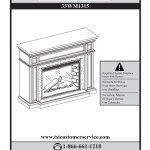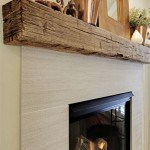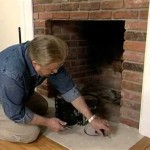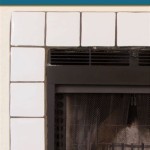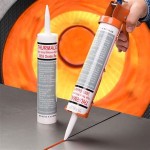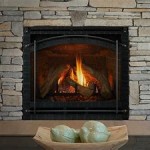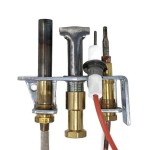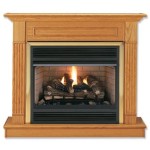Fireplace Des Moines: A Guide to Selection, Installation, and Maintenance
Des Moines, Iowa, experiences significant temperature variations throughout the year, making a functional and aesthetically pleasing fireplace a valuable asset in many homes. The presence of a fireplace contributes not only to supplemental heating but also to the ambiance and overall character of a living space. Selecting, installing, and maintaining a fireplace in Des Moines requires careful consideration of various factors, including local building codes, energy efficiency regulations, and personal preferences.
This article provides a comprehensive overview of fireplaces in Des Moines, encompassing different types, the installation process, necessary permits, and routine maintenance procedures. The information presented aims to equip homeowners with the knowledge needed to make informed decisions regarding their fireplace investment, ensuring both safety and long-term satisfaction.
Types of Fireplaces Available in Des Moines
The market offers a diverse selection of fireplaces, each distinguished by its fuel source, design, and operational characteristics. Understanding the different types is crucial for selecting the most appropriate option for a specific home in Des Moines.
Wood-Burning Fireplaces: These are the traditional fireplace option, utilizing wood as the primary fuel source. Wood-burning fireplaces offer a classic aesthetic and a distinct aroma that many find appealing. However, they require significant effort to maintain, including sourcing, storing, and loading wood. They also produce more emissions compared to other types, potentially leading to concerns about air quality and creosote buildup in the chimney. In Des Moines, wood-burning fireplaces must comply with local regulations regarding emissions and chimney construction.
Gas Fireplaces: Gas fireplaces offer a convenient and efficient alternative to wood-burning models. Fueled by natural gas or propane, they provide instant heat at the flick of a switch. Gas fireplaces are generally cleaner and require less maintenance than wood-burning fireplaces. They are available in various styles, including direct-vent, vent-free, and B-vent models. Direct-vent gas fireplaces are the most efficient and safest option, as they draw combustion air from outside and vent exhaust gases directly outdoors. Vent-free gas fireplaces do not require a chimney, but their use may be restricted in some areas of Des Moines due to concerns about indoor air quality. B-vent gas fireplaces utilize existing chimneys but are less efficient than direct-vent models.
Electric Fireplaces: Electric fireplaces are the simplest and most versatile option. They require no venting and can be easily installed in virtually any room. Electric fireplaces use electric heating elements to generate heat and often feature realistic flame effects. While they do not offer the same authentic ambiance as wood or gas fireplaces, they are a convenient and energy-efficient option for supplemental heating, especially in smaller spaces. They are also attractive because they require minimal maintenance and pose no risk of carbon monoxide poisoning.
Ethanol Fireplaces: Ethanol fireplaces burn liquid ethanol fuel, producing a clean, smokeless flame. These fireplaces are ventless and portable, making them a flexible option for adding ambiance to various spaces. However, they typically provide less heat compared to other types of fireplaces, and the cost of ethanol fuel can be significant. It's important to ensure proper ventilation when using ethanol fireplaces to prevent the buildup of carbon dioxide. The availability of ethanol fuel in Des Moines is generally good, but pricing can fluctuate depending on market conditions.
Pellet Stoves: While technically not fireplaces, pellet stoves are a popular alternative for heating homes in Des Moines. Pellet stoves burn compressed wood pellets, which are a renewable and relatively clean-burning fuel source. Pellet stoves are highly efficient and provide consistent heat output. They require electricity to operate but are generally more energy-efficient than electric fireplaces. Pellet stoves require regular cleaning and maintenance to ensure optimal performance.
Installation Process and Permitting in Des Moines
Installing a fireplace involves several steps, from selecting the appropriate model to ensuring proper venting and compliance with local building codes. In Des Moines, obtaining the necessary permits is crucial before commencing any fireplace installation project.
Permit Requirements: Most fireplace installations in Des Moines require a building permit from the City of Des Moines Inspections Division. The permit application typically requires detailed information about the fireplace, including its type, size, venting system, and location within the home. Drawings or diagrams may be required to illustrate the proposed installation. It is advisable to contact the Inspections Division directly to confirm the specific permit requirements for a particular project.
Professional Installation: While some homeowners may be tempted to install a fireplace themselves, it is strongly recommended to hire a qualified and licensed contractor. Incorrect installation can lead to safety hazards, such as gas leaks, carbon monoxide poisoning, and chimney fires. A professional installer will ensure that the fireplace is properly vented, connected to the fuel source, and complies with all applicable building codes. They will also be familiar with the specific requirements and regulations in Des Moines. Obtaining multiple quotes from different contractors is advisable to ensure competitive pricing and reliable service.
Venting Considerations: Proper venting is critical for the safe and efficient operation of a fireplace. The type of venting system required depends on the type of fireplace being installed. Wood-burning fireplaces require a masonry or prefabricated chimney that is properly sized and constructed to vent smoke and combustion gases. Gas fireplaces may require a direct-vent, B-vent, or vent-free system, depending on the model. Electric and ethanol fireplaces do not require venting. Ensuring that the venting system is properly installed and maintained is essential for preventing carbon monoxide poisoning and chimney fires. Regular inspections of the chimney or venting system are recommended to identify and address any potential problems.
Safety Inspections: After the fireplace is installed, the City of Des Moines Inspections Division will typically conduct a final inspection to ensure that the installation complies with all applicable building codes and safety regulations. The homeowner or contractor must schedule the inspection after the installation is complete. The inspection may include checking the venting system, gas connections, electrical wiring, and clearances to combustible materials. Addressing any deficiencies identified during the inspection is crucial to obtain final approval and ensure the safe operation of the fireplace.
Energy Efficiency Considerations: When installing a fireplace in Des Moines, it is important to consider energy efficiency. Selecting an energy-efficient model can help reduce heating costs and minimize environmental impact. Direct-vent gas fireplaces are generally the most energy-efficient option, as they draw combustion air from outside and vent exhaust gases directly outdoors. Electric fireplaces are also relatively energy-efficient, as they convert electricity directly into heat. Wood-burning fireplaces can be less energy-efficient, as a significant amount of heat can escape through the chimney. Improving insulation around the fireplace and sealing any air leaks can also help improve energy efficiency.
Fireplace Maintenance and Safety Tips
Regular maintenance is essential for ensuring the safe and efficient operation of a fireplace. Proper maintenance not only extends the lifespan of the fireplace but also reduces the risk of fire hazards and other safety issues. In Des Moines, as elsewhere, adhering to safety guidelines is paramount.
Chimney Sweeping: For wood-burning fireplaces, regular chimney sweeping is crucial to remove creosote buildup. Creosote is a flammable substance that accumulates in the chimney as a byproduct of burning wood. If creosote buildup becomes excessive, it can ignite and cause a chimney fire. The National Fire Protection Association (NFPA) recommends that chimneys be inspected at least once a year and cleaned as often as necessary. In Des Moines, many certified chimney sweeps offer inspection and cleaning services. The frequency of chimney sweeping depends on the frequency and type of wood burned. Using seasoned (dry) wood can help reduce creosote buildup.
Gas Fireplace Maintenance: Gas fireplaces require less maintenance than wood-burning fireplaces, but regular inspections and cleaning are still necessary. The burner should be cleaned periodically to remove any debris or dust that may have accumulated. The pilot light should be checked regularly to ensure that it is burning properly. The venting system should be inspected for any blockages or damage. A qualified technician should inspect and service gas fireplaces annually to ensure safe and efficient operation. This inspection should include checking for gas leaks, testing the carbon monoxide detector, and verifying the proper operation of the safety controls.
Electric Fireplace Maintenance: Electric fireplaces require minimal maintenance. The heating element should be cleaned periodically to remove any dust or debris. The flame effect should be checked to ensure that it is working properly. The electrical wiring should be inspected for any damage or wear. Replacing the light bulbs that create the flame effect may be necessary periodically.
Carbon Monoxide Detectors: Carbon monoxide (CO) is a colorless, odorless, and poisonous gas that can be produced by fireplaces and other fuel-burning appliances. Installing and maintaining carbon monoxide detectors is crucial for protecting against CO poisoning. CO detectors should be installed on every level of the home, especially near sleeping areas. The batteries in CO detectors should be tested regularly and replaced at least once a year. If the CO detector alarms, it is important to evacuate the home immediately and call the fire department.
Fire Safety Measures: In addition to regular maintenance and CO detectors, several other fire safety measures should be implemented when using a fireplace. Keep flammable materials, such as curtains, furniture, and paper, away from the fireplace. Never leave a fire unattended. Use a fire screen to prevent sparks from escaping the fireplace. Ensure that the fireplace damper is open when starting a fire. Dispose of ashes properly in a metal container with a tight-fitting lid. Have a fire extinguisher readily available in case of a fire.
Professional Inspections: Regardless of the type of fireplace, it is recommended to have it professionally inspected at least once a year. A qualified technician can identify potential problems and perform necessary repairs to ensure safe and efficient operation. Regular inspections can help prevent costly repairs and extend the lifespan of the fireplace.

Chim Cherie House Of Fireplaces Wood

Chim Cherie House Of Fireplaces Wood

Chim Cherie S House Of Fireplaces 10 Photos 534 35th St Des Moines Iowa Fireplace Services Phone Number Yelp

Chim Cherie House Of Fireplaces Wood

Chim Cherie House Of Fireplaces Wood

Chim Cherie S House Of Fireplaces Des Moines Iowa Stoves Inserts Wood And Gas

Chim Cherie S House Of Fireplaces Des Moines Iowa Stoves Inserts Wood And Gas

Chim Cherie House Of Fireplaces Electric

Chim Cherie House Of Fireplaces Accessories

Chim Cherie House Of Fireplaces Gas
Related Posts

